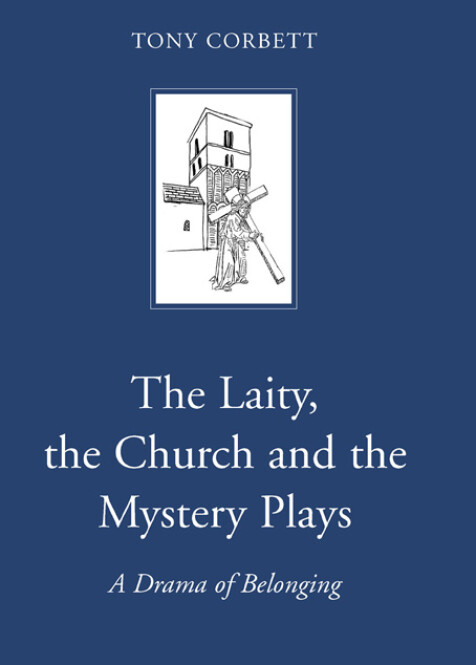The laity, the church and the mystery plays
A drama of belonging
Tony Corbett
With a Foreword by Dame Judi Dench.
Over the course of more than two hundred and fifty years, from the fourteenth century until well after the Reformation had become established, biblical plays were performed by groups of lay people across England. From the great public performances at York and Chester, to the private collection of the Towneley MS, the plays were an index of the spiritual and social concerns of a sizeable section of urban English people.
This book sets out to examine historical, theological and textual evidence of those concerns. It proposes that the plays’ agenda, while irrefutably orthodox, reflected a lay spirituality which was not always in accord with the disciplines of the medieval church. The plays provided a means for the expression of the spiritual needs of an increasingly self-aware and economically important laity. The book places significant emphasis on textual close reading, and balances the mnemonic simplicity of the church’s syllabus for the laity against the richness of the play texts. It examines the records of the guilds and fraternities responsible for some of the plays, and considers whether, in the light of their other activities, the main audience for the plays may have been the members themselves, rather than a wider public.
Tony Corbett is an independent scholar and teacher. He has published articles on literature and drama, from the Middle Ages to the present day, and in journals as diverse as Medieval English Theatre, Research Opportunities in Renaissance Drama, and The Brazilian Journal of Irish Studies. A second edition of his book Brian Friel: Decoding the language of the tribe was published recently. He is an associate editor of The Irish Book Review.
This book is part of the Dublin Studies in Medieval and Renaissance Literature series (John Scattergood, series editor). Other titles in this series include: Dinah Hazell, Poverty in Late Middle English Literature: the meene and the riche; Eiléan Ní Chuilleanáin & John Flood, Heresy and Orthodoxy in Early English Literature, 1350-1680; and Carol J. Harvey, Medieval French Miracle Plays: seven wrongly accused women.

